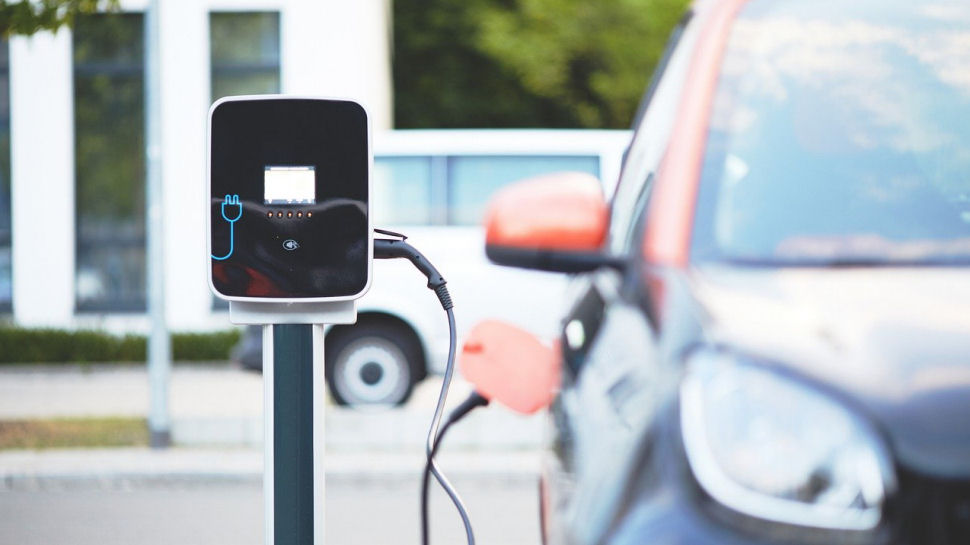Parking technology: the perfect space for innovation
Insight into how technology is changing the parking industry today and what innovation is next

Technology has reshaped almost every industry, and mobility is no exception. From electric vehicles to autonomous cars, smart motorways and in-car infotainment systems, every aspect of the industry seems to have been touched by innovation.
That is until you come to parking…or so you think.
The parking industry, although maybe without as much ceremony, is becoming a hub of innovation. It is taking advantage of technology that has had a positive impact in other industries and making it work.
It is all in the app
Our lives today are dominated by apps. From the moment we wake up, throughout our whole day, and quite possibly the last thing we look at before we go to bed. There is an app for everything. And parking is no different.
Long gone are the days of scrounging around for coins and sticking something to your windshield. Today parking apps have everything from locating a parking lot, directions to a specific spot, payment and extension capabilities.
Moving with the times, parking apps now even track electric vehicle charging points and are working towards combining parking payments and charging payments to provide one simple process. This will go a long way to helping to encourage the adoption of electric vehicles (EVs) as the range of EVs and the availability of charging points are key barriers to adoption.
Parking in your own words
Not only do apps run the world, we are becoming even more dependent on using our voice to get what we need. From asking Alexa to play music and act as our kitchen timer, to controlling smart devices in our home, we now talk to our tech. Taking this tech out of the house and into the car, Amazon Echo Auto launched in 2020 and made us think about other things Alexa could help with.
Sign up to the TechRadar Pro newsletter to get all the top news, opinion, features and guidance your business needs to succeed!
Tapping into Alexa Skills – which enable Amazon’s voice assistant to connect with devices and software to execute tasks – parking can now be voice activated too. By enabling parking payments in seconds through voice activation, this takes the payment process truly touch free. This innovation also follows a current trend in the uptake of cashless payments in the wake of Coronavirus with local authorities and parking operators providing safer ways to pay for parking.
Infotainment parking
There is no denying that cars have become smarter, soon they will even be driving themselves while we sit back and relax. They tell us when they need to be serviced, warn us when we are about to reverse into something, use alternative fuel types and continue to become more luxurious through the years. They are becoming super computers within themselves.
One area where car manufacturers are now focusing is making infotainment systems within cars that replicate your smartphone. From music to VoIP phone calls, everything can be done from one central location with complete ease. What is also now being realized is how much of a utility this can be. If the system also includes useful apps that help get you from one place to another, and, surprise, help you park, then a car suddenly becomes even more than just four wheels to get from one place to another.
Car manufacturers that are including a parking app as a standard part of the infotainment system truly understand the whole mobility journey. Those that realize that it doesn’t necessarily stop when you simply reach your destination but include the technology to ensure that drivers can safely and efficiently park, are one step ahead of the rest.
As is normal in the tech world, competition in this arena is fierce. Not only are car manufacturers working on solutions, but, as mentioned before, Amazon Echo Auto alongside Apple Car Play and Android Auto are also making it more accessible to do everything from one place.
Parking the data
While the world has been leaning into the insights that data can provide, many in the parking world have been relying on gut instinct and falling back on old habits. But with all the advancement of parking apps comes a deluge of data.
Data that can help to plan cities, understand traffic patterns and high street habits. It can help local councils to meet sustainability goals by understanding the types of cars visiting the area and automatically implement tariffs on higher polluting vehicles. It can provide ROI insight and help to provide predictive revenues for parking operators.
Not to mention the trickle down impact on motorists. From helping to predict the availability of parking spots to creating more navigable cities and a delivering a smoother transition from one form of mobility to another.
This influx of data will continue to increase as cities become smarter, with IoT technology collecting and analyzing data to understand how infrastructure is used. And parking data will play a role in this. Analytics and business intelligence can be applied even here.
The future of parking
In 2020, being able to use cashless payments in all arenas has become more important than ever. Parking apps have added a great deal of reassurance to motorists as they began venturing back out after strict lockdown measures. They provide a valuable way for local councils to encourage visitors to return to highstreets and local attractions, without putting themselves or staff at additional risk. But this is just the beginning.
It is important that parking becomes a part of the whole mobility journey – from door to door. Integrating mapping, parking, train tickets, bus schedules, e-Scooter rental and more into a seamless process is what travelers are going to look for moving forward.
- Peter O’Driscoll, Managing Director at RingGo.
- We've featured the best cloud storage.
Peter O’Driscoll, Managing Director at RingGo. He has over 23 years of working experience and is passionate about technology.
